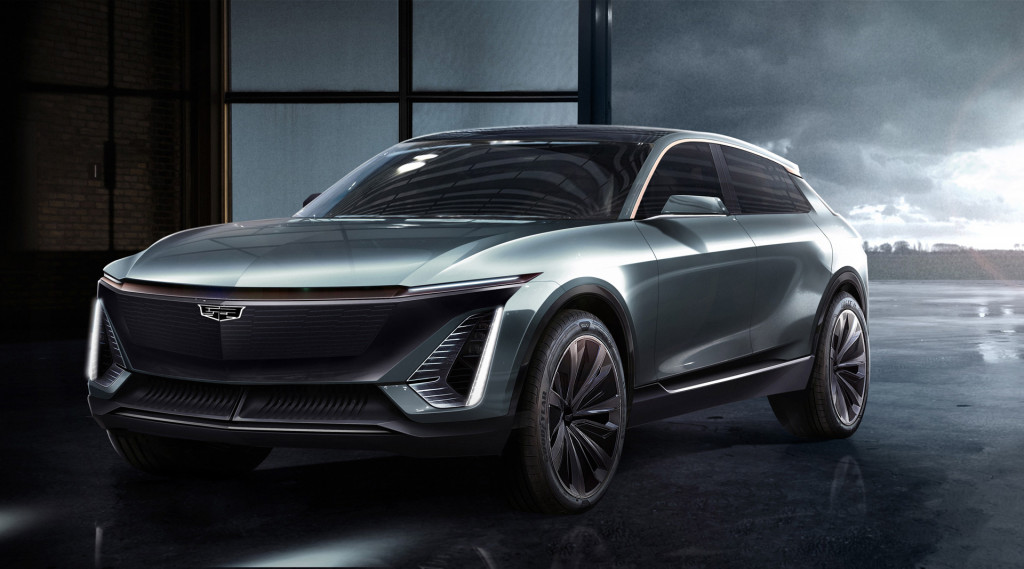General Motors provided Wednesday the most comprehensive picture yet of how its “all-electric future” will take form—quickly, efficiently, and profitably, as the company emphasized.
With a no-cameras presentation to press and investors, the company previewed 11 fully electric vehicles in different stages of development. Building off the flexibility teased last month by company executives, it distilled the philosophy behind its so-called BEV3 architecture to a very simple common thread: One cell family, one motor family, endless possibilities.
The so-called Ultium battery packs will range from 50 to 200 kilowatt-hours, with a driving range of “up to 400 miles or more,” while motor power (via one, two, or three motors) will add up to a total of 235 hp to 1,000 hp per vehicle.
Through GM’s $2.3 billion joint venture with LG Chem, at an upcoming facility set to break ground in Lordstown, Ohio, in April, the company will have a dedicated cell capacity of more than 30 gwh per year, with room to expand. Groundbreaking for the new facility will be this spring.
GM’s cell modules will have a built-in battery management system that allows the automaker to upgrade cells down the line more easily, and the large-format cells cut out 80 percent of the wiring versus using smaller cells.

GM EV day - battery
Depending on the vehicle, GM can stack its large-format pouch modules horizontally or vertically, with a total of 19 different battery and drive unit configurations. That will be a dramatic reduction in complexity compared to the 555 different internal-combustion powertrain combinations the company has today.
The new architecture can support front-, all-, or rear-wheel drive, using versions of the same motor family mounted in front or in back.
GM has what amounts to a single component set that spans cars, crossovers and trucks, with a platform shared among the cars and crossovers. One key difference between GM’s strategy and those of some other automakers is that it’s not a skateboard—meaning that the components come together in a way that does not suggest building “rollers” that can then fit propulsion systems. That leaves the option open for most or all of the cars and crossovers to share some common body or chassis components while trucks might be body-on-frame.
Trucks also deviate from the format in offering the possibility of double-stacking battery packs, which allows GM to connect them to enable 800-volt charging and 350-kw DC fast-charging capability. Ultimately that will enable charging rates of up to 100 miles in 10 minutes for either the 400- or 800-volt versions.
The first of the vehicles from the new architecture, the GMC Hummer SUT, will come with three motors, including two at the rear wheels. It will go into production next fall—to be joined by a Hummer SUV derivative as well, with other EV trucks from each brand to follow.

Teaser for Cadillac Lyriq electric cossover SUV based on GM BEV3 modular platform
In early 2022 the Cadillac Lyriq, a mid-size electric crossover that helps set a new design direction for Cadillac, will reach the market. GM says that by the end of the decade most models from Cadillac will be EVs.
Prior to both of these models, a refreshed version of the Bolt EV will launch late this year, followed by the Bolt EUV—a version built on a wheelbase 3 inches longer but carrying over the existing battery pack and front-wheel drive. The EUV will be the first of many vehicles outside of Cadillac to offer its SuperCruise driver-assist system.
Prior to the introduction of the EUV, GM is anticipating that Bolt EV sales will double year over year, to 50,000, with 30,000 for the U.S.
GM is still aiming for 1 million global sales by the middle of the decade; so look for many more EVs to arrive in the next two to four years—including updates from us in the coming days about all that we saw.
